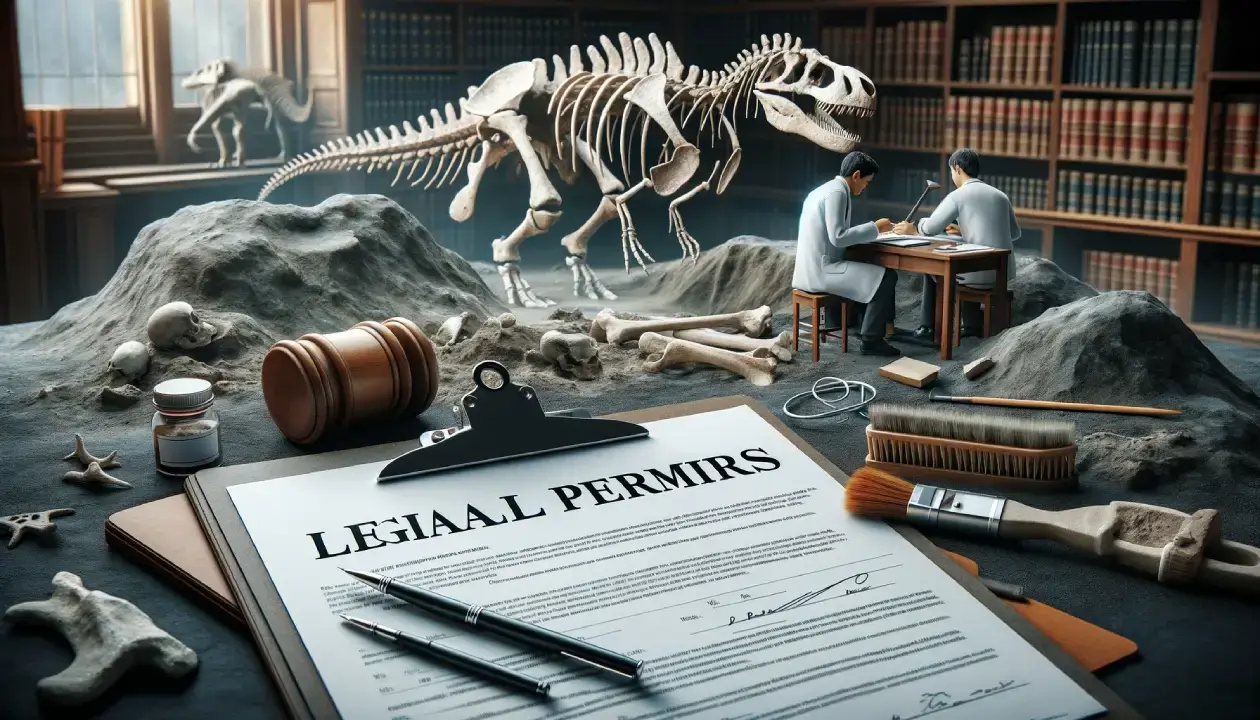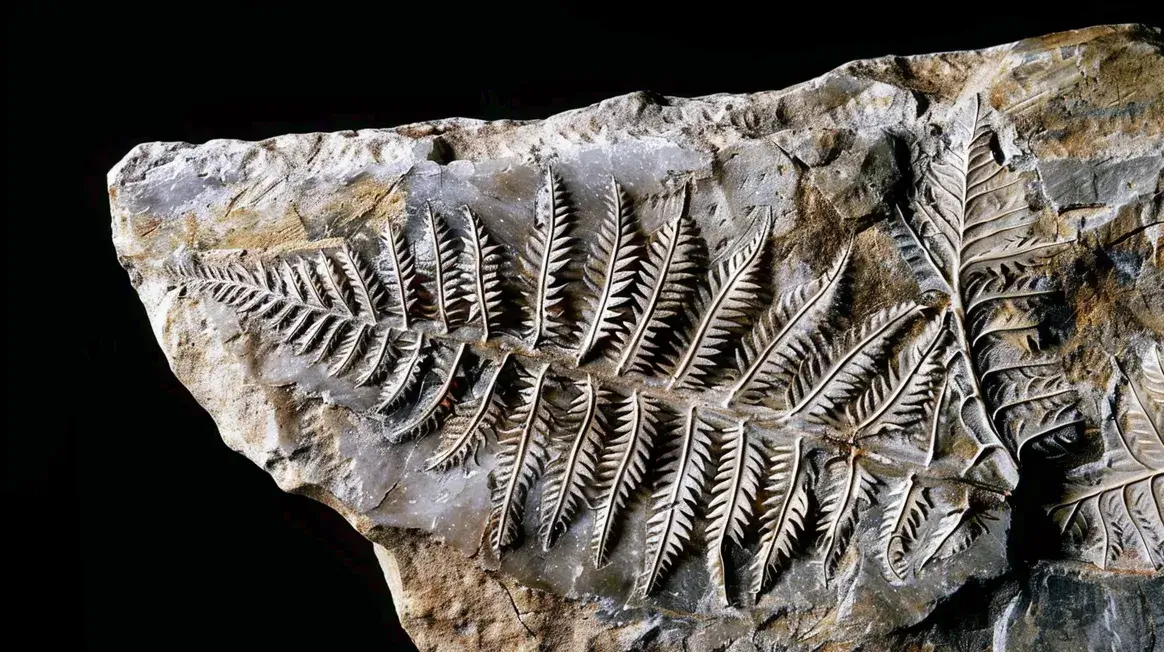When it comes to the fascinating world of dinosaur fossils, there are important legal aspects to consider. From the discovery of these ancient treasures to the rights of ownership, paleontological legislation plays a crucial role in governing the conservation and management of these invaluable specimens. Let’s explore the key legal factors that come into play.
| Key Points | Takeaways |
|---|---|
| Legal Framework for Fossils | Paleontological legislation governs fossil discovery, ownership, and conservation. |
| National Park Service Regulations | The NPS enforces specific rules for fossil conservation within national parks. |
| Paleontological Resources Preservation Act | Establishes federal guidelines for fossil excavation, research, and ownership in the U.S. |
| Jurisdictional Variations | Fossil laws differ significantly across regions and countries. |
| Impact of Scientific Value on Ownership | Fossils’ scientific importance influences their legal protection and trade regulations. |
| Challenges in Private Fossil Ownership | Private ownership can limit scientific access and obscure geological context. |
| International Perspective | Fossil regulations vary internationally, with different rules for collection, ownership, and trade. |
The National Park Service and Paleontological Resources
The National Park Service (NPS) plays a crucial role in the preservation and management of paleontological resources. Operating under the authority of the National Park Service Organic Act of 1916, the NPS is responsible for conserving natural and historic objects within national parks. This includes the protection of dinosaur fossils and other paleontological resources.
The NPS has specific regulations in place to ensure the preservation of paleontological resources. These regulations are found within the NPS general regulations in 36 Code of Federal Regulations (C.F.R.) Chapter I. They prohibit the removal or destruction of fossils without proper authorization and require permits for research and collection activities. These regulations aim to safeguard the integrity of fossil sites and facilitate scientific study and educational opportunities.
By establishing guidelines for the preservation and management of paleontological resources, the NPS contributes to the scientific understanding and appreciation of our prehistoric past. The collaboration between the NPS, researchers, and the public is crucial in protecting and studying these valuable resources for present and future generations.
The National Park Service Regulations
| Regulation | Description |
|---|---|
| Prohibition of Removal or Destruction | It is illegal to remove or destroy fossils within national parks without proper authorization. |
| Research and Collection Permits | Anyone conducting research or collecting fossils within national parks must obtain a permit from the NPS. |
| Preservation of Fossil Sites | The NPS is committed to preserving the integrity and scientific value of fossil sites within national parks. |
Protection of Paleontological Resources on Federal Land
The Paleontological Resources Preservation Act of 2009 (PRPA) is a crucial piece of legislation that governs the management and protection of paleontological resources on federal land. The PRPA directs federal land managing agencies, such as the National Park Service and the Bureau of Land Management, to employ scientific principles and expertise in the management and preservation of fossils. Under the PRPA, these agencies are required to develop plans for inventorying and monitoring fossils, as well as ensuring their scientific and educational use.
The PRPA also establishes regulations for research and collecting permits, as well as the curation of fossil specimens. It is important to note that the final PRPA regulations were published in the Federal Register in 2016 and 2015, providing a comprehensive framework for the protection of paleontological resources on federal land. These regulations serve to safeguard fossils from theft, destruction, and unauthorized collection, helping to preserve the scientific value and integrity of these important artifacts.
The PRPA also includes provisions for criminal and civil penalties for paleontological resource crimes. This serves as a deterrent for individuals who might engage in illegal activities related to fossil collection and trade. By establishing clear guidelines and consequences, the PRPA aims to ensure the responsible management and protection of paleontological resources on federal land, preserving them for future generations and promoting scientific research and education.
PRPA Regulations on Federal Land
In accordance with the Paleontological Resources Preservation Act, federal land managing agencies have implemented regulations to enforce the provisions of the PRPA. These regulations outline the specific requirements and procedures for obtaining research and collecting permits, as well as the proper handling and curation of fossil specimens.
Some key aspects of the PRPA regulations on federal land include:
- A permit system for conducting scientific research and collecting fossils on federal land.
- Requirements for reporting and cataloging fossil discoveries.
- Guidelines for the curation, storage, and documentation of fossil specimens.
- Provisions for public access to fossil collections and educational use.
- Penalties for violations of the PRPA and its regulations.
These regulations ensure that paleontological resources on federal land are managed and protected in a responsible and sustainable manner, promoting scientific research, public education, and the preservation of our natural heritage.
| PRPA Regulations on Federal Land |
|---|
| A permit system for conducting scientific research and collecting fossils on federal land. |
| Requirements for reporting and cataloging fossil discoveries. |
| Guidelines for the curation, storage, and documentation of fossil specimens. |
| Provisions for public access to fossil collections and educational use. |
| Penalties for violations of the PRPA and its regulations. |
Jurisdictional Variations in Fossil Laws
Fossil laws differ across jurisdictions, with each country and region having its own regulations. Understanding these variations is crucial for individuals involved in fossil discovery, collection, and ownership. In this section, we will explore the variations in fossil laws in different countries, focusing specifically on Alberta, Canada, and the United States.
Fossil Laws in Alberta, Canada
In Alberta, fossil collection and ownership are subject to strict regulations. The province has taken significant steps to protect its fossil heritage, recognizing the scientific and cultural value of fossils. As of 2012, the Alberta Historical Resources Act classifies all paleontological resources as a protected heritage resource, including fossils on private land. This means that individuals wishing to collect fossils in Alberta must obtain permits from the Alberta government, and fossil collections are considered property of the province. Furthermore, fossils found on public land in Alberta are entirely owned by the government.
Fossil Laws in the United States
The United States has diverse fossil laws that vary from state to state and even between federal and private land. On federal land, such as national parks and Bureau of Land Management areas, it is generally illegal to collect fossils without proper authorization. However, on private land, fossil collection is often allowed without restrictions. In some states, such as Wyoming and Montana, fossils found on private land are owned by the landowner. In contrast, other states, such as Colorado and Texas, consider fossils found on private land to be part of the surface estate and, therefore, owned by the surface landowner. These variations in state laws add complexity to the ownership and trade of fossils within the United States.
| Country/Region | Fossil Laws |
|---|---|
| Alberta, Canada | Strict regulations regarding collection and ownership. Fossils on private land require permits, and collections are considered property of the province. |
| United States (Federal Land) | Generally illegal to collect fossils without proper authorization. Strict regulations in national parks and Bureau of Land Management areas. |
| United States (Private Land) | Fossil laws vary by state, with some states allowing fossil collection on private land without restrictions, while others consider fossils part of the surface estate, owned by the landowner. |
It is essential for collectors, researchers, and enthusiasts to understand the specific fossil laws in their respective jurisdictions. This knowledge will ensure compliance with regulations and contribute to the responsible preservation and study of fossil resources.

Factors Impacting Fossil Ownership and Trade
When it comes to fossil ownership and trade, several factors come into play. The scientific value and rarity of fossils, the location where they are found, and the laws governing possession, ownership, and commercial use all have a significant impact.
The scientific value of fossils plays a crucial role in determining their importance and level of protection. Fossils that provide unique insights into evolutionary history or fill gaps in our understanding of ancient ecosystems are highly valued by the scientific community. These rare specimens are often subject to stricter regulations to ensure their preservation and accessibility for study.
Location also factors into fossil ownership and trade. Different countries and regions have varying laws and regulations regarding fossil collection and ownership. For example, some regions may have more lenient regulations on private land, while others prohibit the removal of fossils from protected areas such as national parks. It is important to research and understand the specific laws in the jurisdiction where fossils are being discovered or collected.
Possession and ownership rights also play a significant role in the trade of fossils. Some countries or regions may regulate the possession and transfer of fossils, requiring permits or documentation to ensure legal ownership. Commercial use of fossils, such as selling them for profit, may also be subject to specific permits and regulations to prevent the exploitation of important scientific specimens.
In summary, the scientific value of fossils, their rarity, the location where they are found, and the legal considerations of possession, ownership, and commercial use all have a significant impact on fossil ownership and trade. Understanding these factors and complying with the relevant laws and regulations is crucial for researchers, collectors, and enthusiasts alike.

Challenges and Concerns in Dinosaur Fossil Ownership
Access to fossils for scientific study is a crucial aspect of paleontology. However, private fossil ownership can present challenges and concerns when it comes to providing access to these valuable specimens. Peer review and inspection are important for the scientific community to validate research and ensure accuracy. Unfortunately, private fossil owners may choose to withhold access to their collections, limiting opportunities for scientific study and collaboration.
The geological context in which fossils are found is essential for understanding their age, environment, and evolutionary significance. Private sellers may not always provide detailed information about the context of fossils they possess, making it difficult for researchers to interpret their scientific value accurately. Without this crucial information, the full potential of the fossils may not be realized, hindering our understanding of Earth’s history and the evolution of life.
Furthermore, museum budgets can limit their ability to acquire significant fossils that are highly priced in the market. As private collectors may place high monetary value on rare specimens, museums may struggle to compete financially to acquire these fossils for display and scientific study. Budget constraints can restrict access to important fossils, preventing their inclusion in public collections where they can be studied and appreciated by a wider audience.
Challenges and Concerns in Dinosaur Fossil Ownership
| Challenges | Concerns |
|---|---|
| Restricted access for scientific study | Limited opportunities for collaboration and validation of research |
| Lack of detailed geological context | Impaired understanding of fossil’s scientific value and significance |
| Museum budget limitations | Restricted acquisition of important fossils for public display and study |
The scientific community advocates for placing important fossils in the public trust, where they can be studied by anyone with a genuine interest in paleontology. By making fossils accessible to researchers, students, and enthusiasts, we can advance our knowledge of Earth’s past and gain a deeper understanding of ancient life forms. Ensuring access to fossils for scientific study, preserving their geological context, and supporting museums’ acquisition efforts are essential for the advancement of paleontology and the dissemination of knowledge to the public.
“The preservation and study of dinosaur fossils require a collective effort. By ensuring access to fossils for scientific study, we can unlock the secrets of Earth’s history and promote a deeper understanding of our planet’s rich biodiversity.”

International Perspective on Fossil Laws
When it comes to fossil laws, regulations vary across different countries, each having their own set of rules and restrictions. It is important to understand the legal distinctions between fossils and artifacts in order to navigate these international laws effectively. While laws governing fossil collection, ownership, and trade differ, there are common themes that can be observed.
Some jurisdictions make distinctions between different types of fossils, such as invertebrate versus vertebrate fossils. For example, in some countries, invertebrate fossils may have fewer restrictions compared to vertebrate fossils. Additionally, it is worth noting that artifacts and human remains are often more heavily protected than fossils, reflecting the cultural significance attached to them.
Researching the specific laws and regulations in each jurisdiction is essential to ensure compliance and to better understand the legal framework surrounding fossil discovery, ownership, and trade. By staying informed and adhering to these laws, individuals can contribute to the responsible preservation and study of fossils around the world.
International Fossil Laws – Key Regulations
| Country | Fossil Laws |
|---|---|
| United States | Laws can vary from no restrictions on private land to complete prohibition in federal parks. |
| Canada | In Alberta, fossil collection and ownership are fairly restrictive, while British Columbia recently enacted rules protecting fossils. |
| United Kingdom | Fossils found on public land are generally owned by the Crown, while private landowners have rights to fossils found on their property. |
| Australia | Laws vary by state or territory, with some regions having restrictions on fossil collection and export. |
| China | Strict regulations are in place to protect fossils, with export permits required for any fossil leaving the country. |
Conclusion
Understanding the legal aspects of dinosaur fossil discovery and ownership is crucial for researchers, collectors, and enthusiasts. The complex web of regulations, which vary by jurisdiction, plays a significant role in the conservation, management, and protection of dinosaur fossils. From the National Park Service regulations to the Paleontological Resources Preservation Act and regional variations, these laws ensure the responsible excavation, research, and ownership of these precious specimens.
However, challenges and concerns persist in the field of paleontology. Access to fossils for scientific study, an important aspect of peer review and understanding, can be limited in cases of private ownership. The preservation of the geological context of fossils is also of utmost importance, as it provides crucial insights into their age and environment. Furthermore, museum budgets may pose limitations on the acquisition of fossils, hindering the ability to secure significant specimens for public study.
Despite these challenges, it is essential for all stakeholders to stay informed and adhere to legal guidelines. By doing so, researchers, collectors, and enthusiasts can contribute to the preservation and understanding of these fascinating fossils. Efforts to strike a balance between scientific study, cultural heritage, and commercial considerations will help ensure the continued exploration and appreciation of dinosaur fossils for generations to come.









